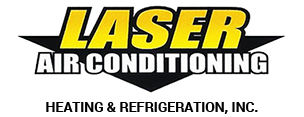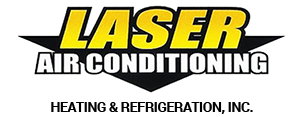Air Conditioning Not Turning On in Hernando Beach: Troubleshooting and Solutions
A functioning air conditioning (AC) system is crucial in Hernando Beach, where the hot and humid climate demands reliable cooling. When your AC unit fails to turn on, it can be frustrating and uncomfortable. Understanding common reasons for AC failures and knowing how to troubleshoot them can help restore comfort quickly. This guide outlines potential causes, troubleshooting steps, and when to seek professional assistance.
Common Reasons Why Your AC Won’t Turn On
If your AC refuses to start, the problem could be due to various factors, including electrical issues, thermostat malfunctions, or mechanical failures. Some of the most common reasons include:
- Power Supply Issues – A tripped circuit breaker, blown fuse, or disconnected power source can prevent your AC from turning on.
- Thermostat Malfunctions – Incorrect settings, dead batteries, or faulty wiring may disrupt the system’s functionality.
- Clogged Air Filters – Dirty filters restrict airflow, causing the unit to overheat and shut down.
- Refrigerant Leaks – Low refrigerant levels can prevent the AC from functioning properly.
- Capacitor or Contactor Failure – These electrical components help start and run the AC. If they fail, the system may not power on.
- Dirty or Frozen Evaporator Coils – Accumulated dirt or ice on the coils can disrupt the cooling process.
- Faulty Compressor – A damaged compressor may prevent the AC from starting or cooling effectively.
- Blocked or Faulty Condensate Drain Line – If the drain line is clogged, the system may shut off as a safety precaution.
Troubleshooting Steps to Fix an AC That Won’t Turn On
Before calling an HVAC technician, you can perform several troubleshooting steps to diagnose the issue:
- Check the Power Source
- Ensure the AC unit is plugged in and receiving power.
- Reset the circuit breaker if it has tripped.
- Replace any blown fuses in the electrical panel.
- Inspect the Thermostat
- Make sure the thermostat is set to “Cool” and at the desired temperature.
- Replace the thermostat batteries if they are dead.
- If the display is blank or unresponsive, consider replacing the thermostat.
- Examine the Air Filters
- Remove and inspect the air filter for dirt buildup.
- Replace clogged filters to restore airflow and prevent overheating.
- Look for Ice on the Evaporator Coils
- If ice is present, turn off the AC and let it defrost.
- Check for airflow restrictions that may have caused freezing.
- Inspect the Outdoor Unit
- Ensure the condenser unit is free from debris and obstructions.
- Check if the fan is running—if not, there may be an issue with the capacitor or motor.
- Check the Condensate Drain Line
- Look for clogs in the drain line that may have triggered the safety shut-off.
- Use a wet/dry vacuum to clear any blockages.
When to Call a Professional HVAC Technician
If troubleshooting does not resolve the issue, it may be time to seek professional assistance. Call an HVAC technician if:
- The AC still won’t turn on after checking power, thermostat, and filters.
- You hear unusual noises, such as clicking or buzzing, when attempting to start the unit.
- The circuit breaker keeps tripping after resetting it.
- There is a suspected refrigerant leak, indicated by hissing sounds or reduced cooling performance.
- The compressor or capacitor is damaged and requires specialized repair.
Preventative Maintenance to Avoid Future AC Problems
Regular maintenance can help prevent AC failures and extend the lifespan of your system. Homeowners in Hernando Beach should:
- Change air filters regularly (every 1-3 months) to maintain airflow and efficiency.
- Schedule annual AC tune-ups to detect and resolve issues before they become major problems.
- Keep the outdoor unit clean by removing debris and trimming vegetation around it.
- Inspect refrigerant levels to ensure optimal performance.
- Test the thermostat periodically to verify accurate temperature readings.
Conclusion
A non-functioning AC in Hernando Beach warm climate can be a major inconvenience. Understanding common causes and following troubleshooting steps can often restore operation without requiring professional repairs. However, if the issue persists or involves major components like the compressor or refrigerant system, it’s best to contact a qualified HVAC technician. Regular maintenance and timely repairs will ensure your AC system remains reliable and efficient throughout the year.

